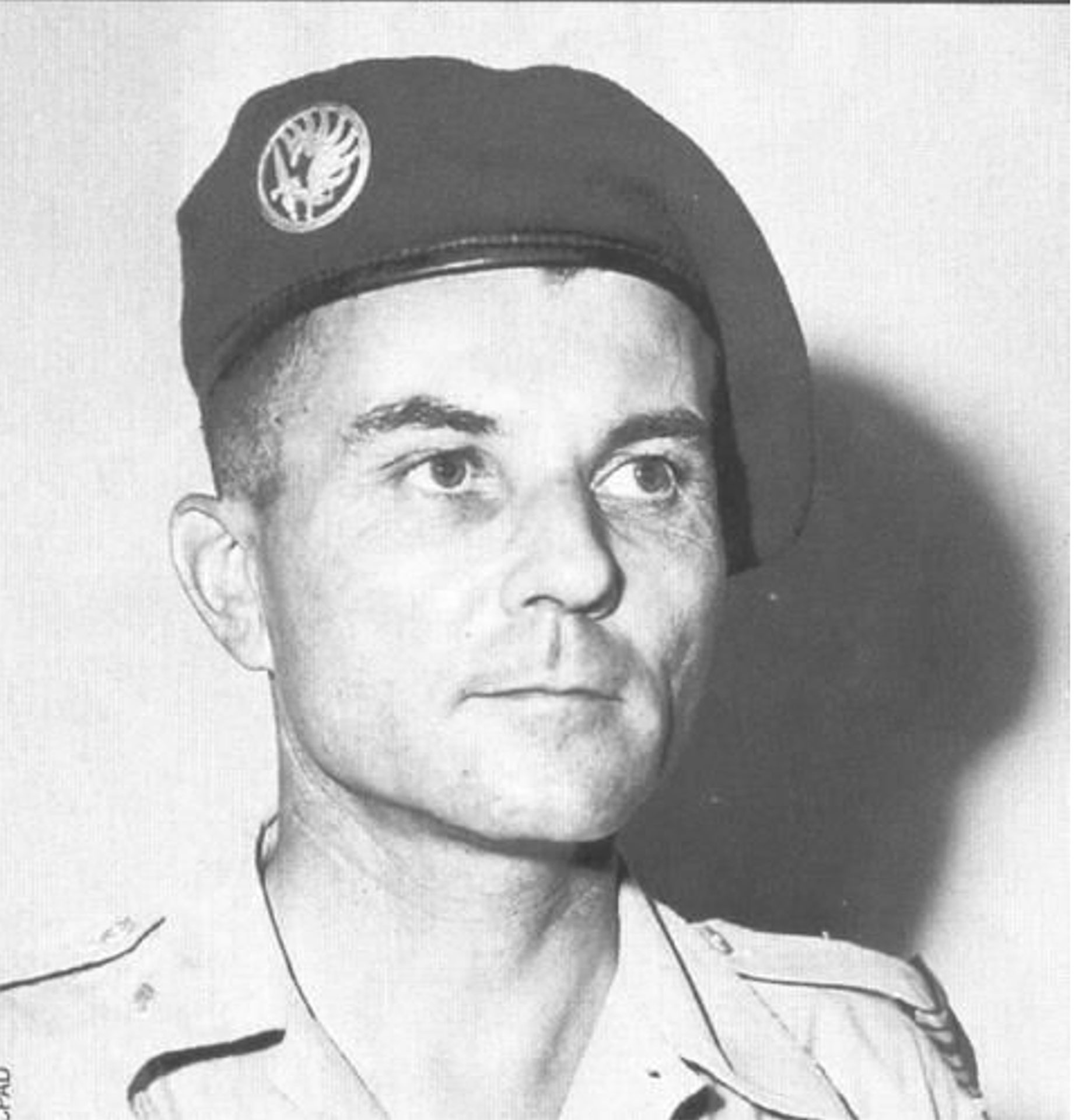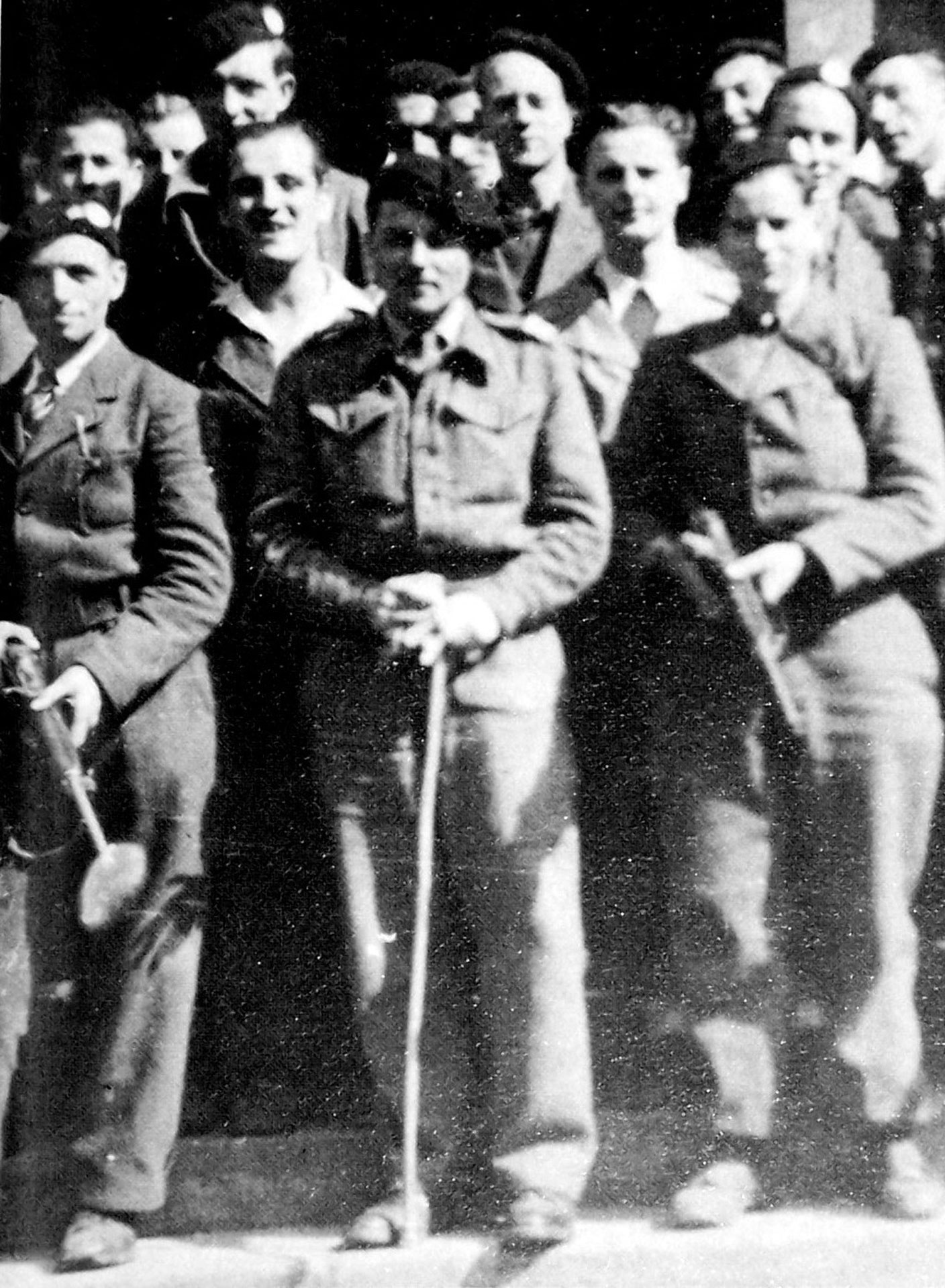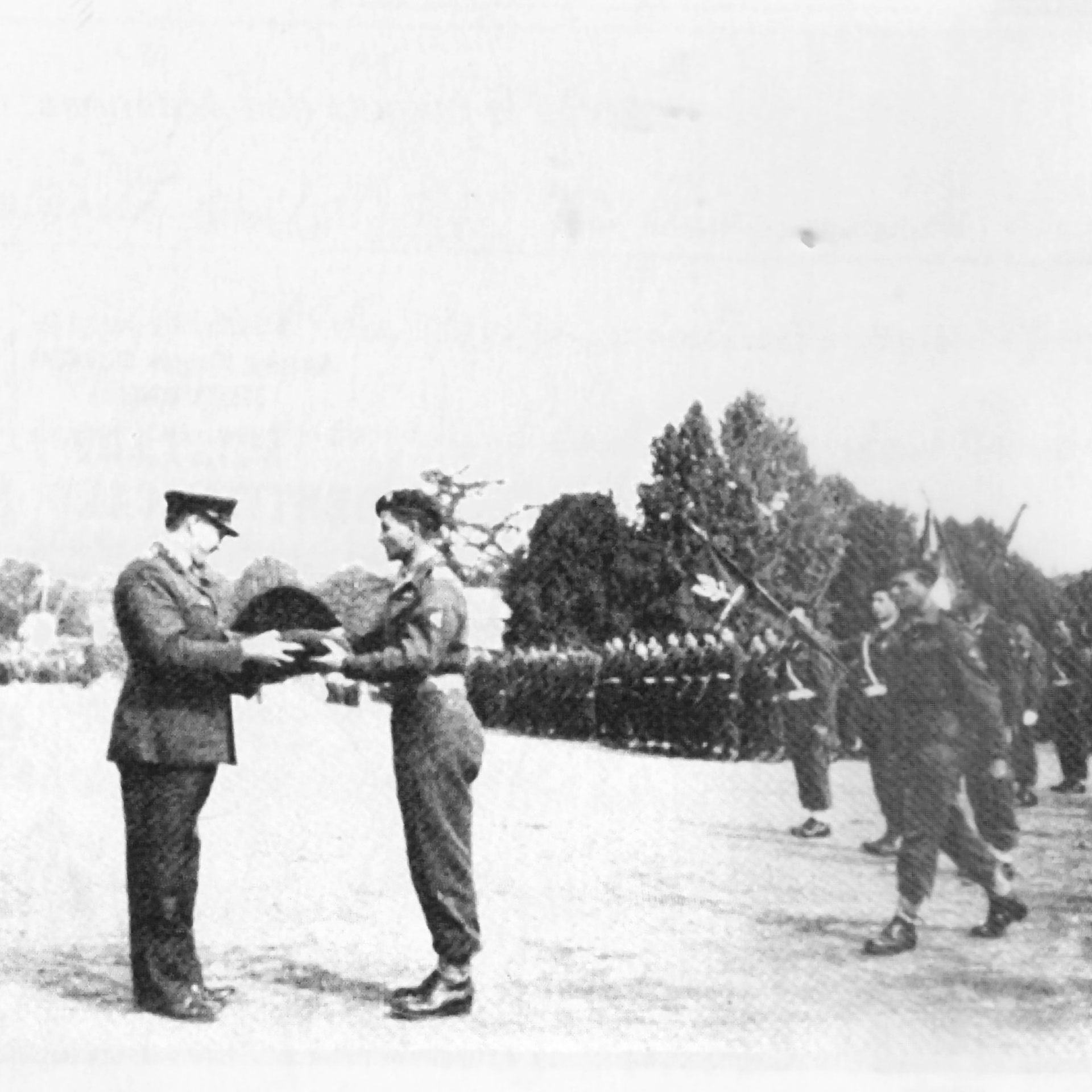Jacques Pâris de Bollardière, the rebellious general
Carrying on the family tradition, Jacques Pâris de Bollardière (1907 – 1986) was destined for a military career. However, he differed from other officers in that he was very outspoken and would say “no” to the orders given to him on several occasions.
In June 1940, as a captain in the French army, he refused the French defeat and decided to go to London even before General de Gaulle’s appeal on 18 June. He became active in the French resistance, for which he was sentenced to death by a court of the Vichy administration. He fought with the Free French Forces in Africa, and was parachuted to France in 1944, where he led the maquis in the Ardennes in northeastern France. In 1945, he took part in the Battle of Holland which accelerated the German defeat. When the Reich surrendered, he was one of the most decorated Frenchmen of the Second World War: among others, he had been made Companion of the Liberation and Grand Officer of the Legion of Honour.
In 1946, he commanded the 1st parachute battalion of the French army leaving for Indochina, then in July 1956, two brigades in Algeria where the war for independence had started two years before. In December 1956, he was promoted to Brigadier General. To fight against the Algerian “National Liberation Front” (Front de Libération Nationale – FLN), the French military and political authorities legitimized the use of torture. Jacques Pâris de Bollardière again got in conflict with the military authority. Not only did he refuse to have prisoners tortured, but he also asked to be relieved of his command in March 1957. In a letter published on 29 March 1957 in the newspaper L’Express, he publicly denounced and condemned the use of torture. This highlighted the deep divisions which existed among former Resistance fighters during the Algerian war: some said that they could not use similar methods as the Gestapo had used against them during the German occupation. Others did not see this as contradiction, for example Captain Jacques Massu, also a Companion of the Liberation, who used torture against prisoners while at the head of the 10th Parachute Division in Algeria and later publicly justified the use of torture. In the French army, Bollardiere’s act of courage was an exception ; as a result, he was sanctioned by the Ministry of War and sentenced to 60 days of confinement in a military fortress. He eventually left the army in April 1961. A man of convictions, which he shared with his wife Simone, he became a leading figure in the Movement for a Non-Violent Alternative (MAN) in France in the 1970s and participated for example in the protests against the nuclear tests done by France in Polynesia.
The acts of disobedience that he displayed express a clear line of conduct: to place ethics above other considerations, without seeking victory at the cost of degrading the opponent.
Marie-Édith Agostini




